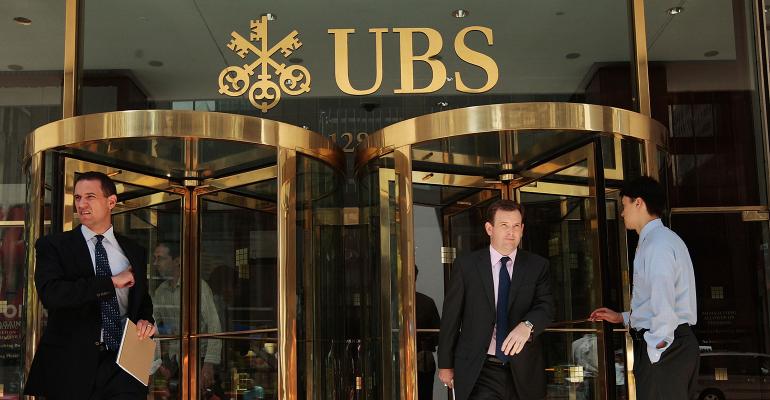UBS will pay more than $8 million to settle charges with the Securities and Exchange Commission (SEC), which argued the firm failed to ensure compliance among its financial advisors who recommended an exchange traded product (ETP) linked to short-term market volatility.
The settlement with UBS marks the second stemming from the commission's ETP initiative, meant to crack down on financial services firms selling inappropriate funds to retail clients. Last November, the SEC settled charges with five firms facing their own alleged compliance lapses, including Summit Financial Group and Securities America Advisors.
“Advisory firms must protect clients from inappropriate investments in complex financial products,” Daniel Michael, chief at the Enforcement Division’s Complex Financial Instruments Unit, said in a statement about the UBS order. “We will continue to scrutinize firms’ policies and procedures related to these risky products, and we will take action when they are inadequate.”
The ETP in question was iPath S&P 500 VIX Short-Term Futures ETN (VXX), and was designed to generate returns by tracking short-term volatility expectations measured against derivatives of a volatility index. But the product’s issuer cautioned UBS that the fund was not designed to be held over the long term, according to the SEC order. In November 2009, representatives for the ETP’s issuer told UBS that it’d be “inappropriate” for client assets to be held in VXX for any extended period of time, and that clients would likely be harmed if they were.
While UBS allowed the ETP to be sold on its brokerage platform, it put restrictions on its sales, according to the SEC. In 2011, UBS’s ETP Committee prohibited brokerage reps from selling the ETP, and in 2016, it allowed unsolicited sales only to customers with an aggressive risk profile and a network of at least $1 million (which was boosted to $10 million the next year).
But the firm didn’t put similar restrictions on financial advisors in the firm’s Portfolio Management Program (PMP), despite understanding the risks, according to the SEC. Advisors with more than five years’ experience could “use their discretion” when investing client assets in VXX, and UBS did not place any restrictions based on a client’s risk profile, net worth or income, according to the commission.
The firm did limit advisors’ investing in the ETP by stating that holdings of volatility ETPs in client accounts couldn’t exceed 3% of an account’s assets. The system was set up to send a notification if a violation hadn’t been solved in 90 days, and to terminate the account if it hadn’t been resolved within 180 days. But UBS failed to properly implement the system that monitored this limit for more than five years, according to the order.
About 1,882 PMP accounts held the VXX product for extended periods, including hundreds of accounts that held it for more than a year, according to the order. Many of those accounts lost a “substantial percentage” of the value of their investments in VXX, including some that lost more than 75%.
“After fully cooperating with the SEC, UBS is pleased to have resolved this matter related to the firm’s policies and procedures for one product in one of its discretionary trading programs between 2016 and 2018,” a UBS spokesperson said about the settlement. “As the SEC acknowledged, UBS proactively reviewed and removed the product from its program before being contacted by the SEC.”
The company’s ETP Committee did recommend that VXX should be removed from the PMP platform in October 2017, which the commission noted in the order was done before it contacted the firm in the course of its investigation. As part of the terms of the settlement, UBS agreed to a cease and desist and a censure, though it did not admit or deny the commission’s findings. Additionally, the firm will pay $112,274 in disgorgement and prejudgment interest, as well as an $8 million civil penalty that will be distributed among affected investors.





